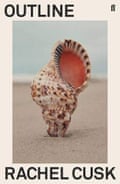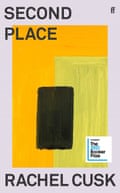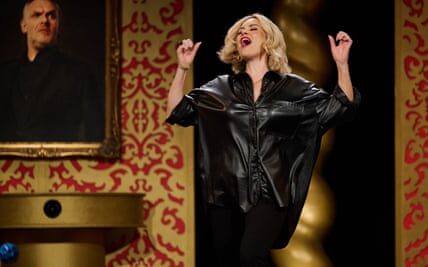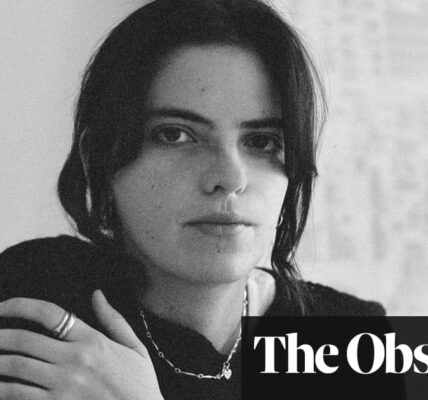To say that the work of Rachel Cusk has provoked strong reactions is an understatement. The author of 12 novels and three works of nonfiction as well as Coventry, an essay collection, her three-decade career has taken her from witty, observant, and critically acclaimed novels of middle-class manners to fictional experiments at the very limits of character. Yet it is her nonfiction that has provoked the most public vitriol, in its merciless exploration of womanhood and its refusal to sugarcoat or minimise her own actions in relation to divorce and motherhood. Twice longlisted for the Booker, she has received an array of prizes and nominations, and was among Granta’s 2003 list of the best of young British novelists. Those who have already devoured all of Cusk’s writing will be excited to know that her new novel, Parade, will be published this week – but for those coming to the author fresh, here’s a guide to her backlist.

The beach read
Cusk acolytes will know I’m being ironic – and, considering the ending, very tongue-in-cheek – when I call anything by Cusk a beach read, but Outline, the first in the trilogy of the same name, does have a beach in it, and its length and propulsive pacing make it a fitting entry point and addition to a reader’s suitcase. This groundbreaking novel follows divorced novelist and mother-of-two Faye to Greece to teach a writing course, where she becomes a sort of therapeutic vessel for the outpourings of a chorus in the form of the people she meets along the way. Conventional plot is practically nonexistent; the effect is revelatory. Really, it’s a masterpiece. Read the trilogy’s remaining two volumes, and depart convinced of the author’s genius.
The one to give your pregnant friend
“I was accused of child-hating, of postnatal depression, of shameless greed, of irresponsibility, of pretentiousness, of selfishness, of doom-mongering and, most often, of being too intellectual,” Cusk wrote in a piece for the Guardian about the response to her 2001 memoir A Life’s Work: On Becoming a Mother. One of the most egregious accusations is that this book is depressing to the point that it will put you off reproducing. Brutally honest and somewhat confronting, certainly, but also bitterly funny about the culture and institutions of motherhood (her description of a baby group makes me laugh out loud every time). I don’t believe in the sort of scare-mongering that is often doled out to pregnant women, but nor do I think we should patronise them, and this remains one of the best, and least sentimental, accounts of early motherhood that there is. Just remember, I always say, that her baby did have really bad colic.

The one worth persevering with
I finished Cusk’s 2021 Booker-longlisted Second Place deeply affected, perhaps even changed, but I began it irritated: who the hell is “Jeffers”, and why does the narrator keep addressing him? I know people who were unable to get past the Jeffers issue, but should you choose to persist, you will be rewarded with a tense and atmospheric exploration of art and artists, ageing and property and, perhaps most of all, the cruel realities of gender. The events – which see the narrator invite an artist to use a cottage on her extensive property as a retreat – take place against the backdrop of lockdown, and will one day I expect be added to the canon of “lockdown novels”. Cheery it is not: L, the artist, has “watched the people of his acquaintance create homes that were like plaster casts of their own wealth, with humans inside. Those structures sometimes exploded and sometimes merely suffocated their occupants.”
The one that will impress you
Saving Agnes, Cusk’s first novel, was hailed as a “funny, knowing tale of middle-class, middle-twenties angst”, which debuted to enthusiastic reviews and won the 1993 Whitbread award. Our protagonist is Agnes Day (yes, really), a spiritually conflicted subeditor from suburbia living in a London flatshare. Most younger Cusk completists will have come to it after reading her more sophisticated – and very different – later works, but Saving Agnes introduces some of what will become the central preoccupations of her oeuvre. It may be a tad dated now, but the sheer intelligence of her finely crafted sentences will leave anyone highly impressed.
after newsletter promotion
The one to give a miss
You need not agree with some of the more horrible reviews to find Aftermath, Cusk’s memoir of divorce and the book that marked her self-described “creative death”, a bit irritating at times. While it’s hard to see how “divorce memoirs” such as Leslie Jamison’s Splinters or Maggie Smith’s You Could Make This Place Beautiful could have existed without the path that Cusk trod first, these books go further than Cusk was willing to go – both Jamison and Smith mercilessly describe their own less than admirable marital conduct. That is not to say that Aftermath doesn’t have much to offer, but there are maddening, if understandable, gaps in the story. If it’s a warts-and-all dissection of a failed marriage that you’re looking for, your rubbernecking impulses are probably better satisfied elsewhere.
The one to mention at dinner parties
Cusk’s essays, collected in Coventry, contain some of her most impressive writing, yet not many people seem to have read them. The title essay, riffing on being “sent to Coventry”, is a meditation on family, silence, and parental control, and opens with the sentence: “Every so often, for offences actual or hypothetical, my mother and father stop speaking to me.” It’s impossible not to read on, and in this collection of writing and criticism that encompasses everything from motherhood and gender to art and Eat, Pray, Love, you’re rewarded with some of Cusk’s finest prose. It contains the sort of acerbic and insightful meditations that, if you’re so inclined, can be dropped into conversation to impress your pretentious guests, especially if you haven’t bothered to read the novels.
Source: theguardian.com



